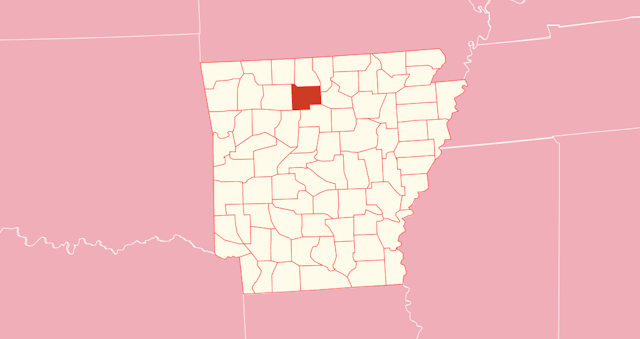Rehabs in Searcy
The US state of Arkansas is home to Searcy County. Its administrative center is in Marshal. According to the 2010 US census, the region’s population was 8,195. This area is popular with such attractions as Berryhill Park and Yancey Park.
Alcohol is prohibited in this area classifying it as a dry county. However, like the rest of AR, Searcy has also felt the dreadful effects of the substance abuse epidemic. Illicit drugs like heroin and meth cause difficulties in each sphere of life. So, it is vital to understand that you are not alone in your struggle and the first step towards recovery is to admit you into rehab.
There are 6 substance abuse treatment and recovery options accessible in this province. Rehabs in Searcy county or nearby, offer a variety of services. So, read the article to get detailed information on available healing options, and choose a center that will benefit you.
Available Treatment Options
If you are struggling with an addiction disorder and co-occurring mental health disorders, you should search for the rehab in Searcy county that best covers your recovery goals. Generally, their programs include detoxification, inpatient and outpatient plans, aftercare, and more. In case of ongoing and severe dependency, you should enroll in inpatient rehab. However, if your problem is new or moderate, you will be able to get treatment in an outpatient rehab program.
To achieve a state of full sobriety, you should spend at least three months in one of these healing programs. Moreover, check out the information on exciting local support groups that will support you during your recovery journey.
Detox
After you made a decision not to drink or use drugs, a detox facility may be incredibly useful for you. Their elimination of certain substances from a body that has become dependent on them may cause painful and even dangerous withdrawal symptoms. A licensed staff of a detox center is to provide medical assistance for making this process comfortable for you. Detox can not assure complete healing. In other words, the real work of recovery begins only after detox.
Inpatient Program
Inpatient type of care requires its patients to stay in the facility during the whole period of treatment. It is to last between 30 and 60 days. However, many centers offer longer or shorter residential programs. The main components of these plans are therapy, counseling, skill development courses, etc.
Partial Hospitalization Program (PHP)
The PHP patient is expected to spend in the hub from 6 to 8 hours daily. The PHP is to last from a month to two months. It involves almost the same healing courses as the inpatient plan, but the patients don’t have to live in the hub.
Outpatient
A patient is expected to be in the outpatient center for 10 to 15 hours weekly. During outpatient care, it is essential to receive the support of family and friends after leaving for home. This type of care is more suitable for those who can’t leave their job, studies, or family responsibilities. So, they can go on with their daily responsibilities and get therapy simultaneously.
Aftercare
After a stay in the hub is a little bit scary and exciting to return home. However, there are aftercare plans that are to work for you and make this transition process easier. Alumni groups and a strong support network will improve your chances for successful recovery.
Aftercare involves 12-step meetings, ongoing psychotherapy or counseling, sober living houses, regular check-ins, and more.
Payment
When you think about finding lasting treatment with rehab, you should consider how much money you are to pay for it. The encouraging thing is that there are many private and public insurance agencies that will cover some of the expenses. As addiction is recognized as a medical disease, many insurance companies include its coverage in their proposals. So, learn about your insurance verification to ease your expenses.
Many rehabs in AR are in network with Blue Cross Blue Shield, Magellan, Aetna, Cigna, UnitedHealthcare, etc. There are also such public insurance projects as Medicaid, Medicare, and Tricare that provide financial assistance to a certain group of society. Check your eligibility and apply for these proposals.
There are also scholarships, grants, medical loans, and sliding fee scales that are to support those who want to treat their drug and alcohol dependency.

